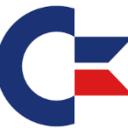Yahoo Answers is shutting down on May 4th, 2021 (Eastern Time) and beginning April 20th, 2021 (Eastern Time) the Yahoo Answers website will be in read-only mode. There will be no changes to other Yahoo properties or services, or your Yahoo account. You can find more information about the Yahoo Answers shutdown and how to download your data on this help page.
Trending News
I recently saw a financial advisor and I would like to get a second opinion on what he is advising.?
I am going to be investing for my future retirement by opening an investment account. I only have about ten more years working as an employee before I retire. I have a couple of other retirement investments that are defined benefits and this new one will be used primarily to supplement my income in retirement along with the other two.
I have always heard that I should max out my 401K at work before doing any other investments but I have not been real eager to do so because there is really no employer match to speak of. Also, I have not had extra, disposable income to invest until now.
I feel I should now probably max out my 401K to the allowable limit to capitalize on the tax deferral advantage even though there will be no employee match but my financial adviser opened a Traditional IRA and we have maxed that out and he has also opened another account with his firm to invest another fairly large monthly sum I will be putting in on a dollar cost average basis each pay day.
Is this proper and sound action or should I be using my 401K to capitalize on the tax advantage I won't enjoy with the account he has initiated? Is this not really a problem or is this a clear, egregious error on his part. He is a new advisor although he is being overseen by others above him.
7 Answers
- Anonymous2 years agoFavorite Answer
Don't forget the old adage, "Don't put all of your eggs in one basket."
I'm one of those people who tried to put 10-15% in to 401Ks *and* another 10-15% into an investment account. At tax time, I *also* put money into a traditional IRA or a ROTH IRA, the choice dictated by my tax bracket.
Maxing out a 401K is somewhat risky for most people if it ties up all of their money. You generally can't access the money unless you leave the job. Even if you take money out as a loan, if you are terminated, you have very little time to pay the money back before it counts as a distribution.
When I retired (before 60), my assets were fairly evenly split between designated retirement funds and the investment accounts. Within the retirement funds, the money was about 50% pre tax and 50% post tax. Even though I had been unemployed a few times, I had never taken money out of the retirement accounts. I treated them as untouchable.
It's been a few years and the only real change is that I've created taxable income by converting pre-tax 401K/IRAs to post-tax ROTH IRAs. At the rate I am going, I expect to have very little money in traditional IRAs by the time I start collecting Social Security.
I never really studied whether or not the Long Term Capital Gains rate can be a better deal than pre-tax 401Ks and IRAs where the money is taxed as ordinary income when you take a distribution. I felt I'd already *won* when I deferred the salary when I was in a high tax bracket (say 33%) and converted it to a ROTH when in a low tax bracket (0% to 15%.)
I'm also solidly middle class, not rich. Rich folks often get burned if they maxed out 401Ks because they will wait until they are 70 to take distributions, finally realize they have a lot of money that has never been taxed, with all the extra money putting them back in a high tax bracket (sometimes higher than when they put the money in), making up to 85% of their SSA benefits taxable *and* triggering higher Medicare premiums, NIIT, etc.
- JudyLv 72 years ago
If there's no employee match, no advantage in 401L over IRA. And depending on your financial situation in returement, a Roth can have several advantages over Traditional.
- GA41Lv 72 years ago
You can put up to 19,000 in a 401K. You are limited to 6,000 in the traditional IRA. Both have similar tax-deferred protection, but the 401K has the advantage of allowing you to contribute more. It is unusual for the employer not to offer some sort of match, so I would double check to make certain there is not a match. You should max out any employee matching first. There match is free money. There may also be management fees. Your 401k may have lower fees than what your broker may be charging. The other thing I like about the 401-k option is that they will take it out of your check before you get your hands on it. You will be less likely to spend it that way. I would also establish an emergency account of at least 3 months earnings in a taxable account. Once you put it in the IRA or 401K the money will be less accessible. So have some accessible emergency money on hand. Keep in mind, It is to your broker's advantage to keep your money under his management. His recommendations are not always unbiased.
- exactdukeLv 72 years ago
Well, you haven't told us what funds (with the ticker symbol) he has you invested in. But unless he is a fee only advisor, I'm guessing they're load funds. Personally I would use your company's 401k. But again, depends on the funds they have.
My favorite companies & funds are: Vanguard, Fidelity, and/or TRowe Price. Has he given you funds from these companies??
- How do you think about the answers? You can sign in to vote the answer.
- AmyLv 72 years ago
An IRA has the same tax advantage as a 401(k) and gives you a lot more choice of investments. But it has a smaller annual contribution limit.
With no employer match, I'd recommend maxing out an IRA first before you put any remaining savings in your 401(k).
The part that sounds sketchy is that you keep saying HE has done things with YOUR money. How much control did you give this person over your money? You should get your advice from someone independent who does not profit from e.g. you investing in a certain fund.
- The TaxpayerLv 72 years ago
in the absence of nothing else, it sounds OKAY to me. No annuities, and no bonds. You need to examine what the advisor will be putting the money into. They usually take a cookie cutter route (60% domestic, 30% international, 7% bonds, and 3% cash for a young person....cookie cutter at your age would put the emphasis on bonds...still a crappy place to be). See if you can find someone who won't take a cookie cutter approach and yet be fairly conservative. Good luck.
- D.E.B.S.Lv 72 years ago
"I would like to get a second opinion" Then go get one. This is not a proper place for real advice on your retirement funds.
"I have not had extra, disposable income to invest until now." I don't believe that. Unless you were in debt the last 40 years you could have put away at least 10% of your income and not have missed it in your day to day life with small adjustments.









